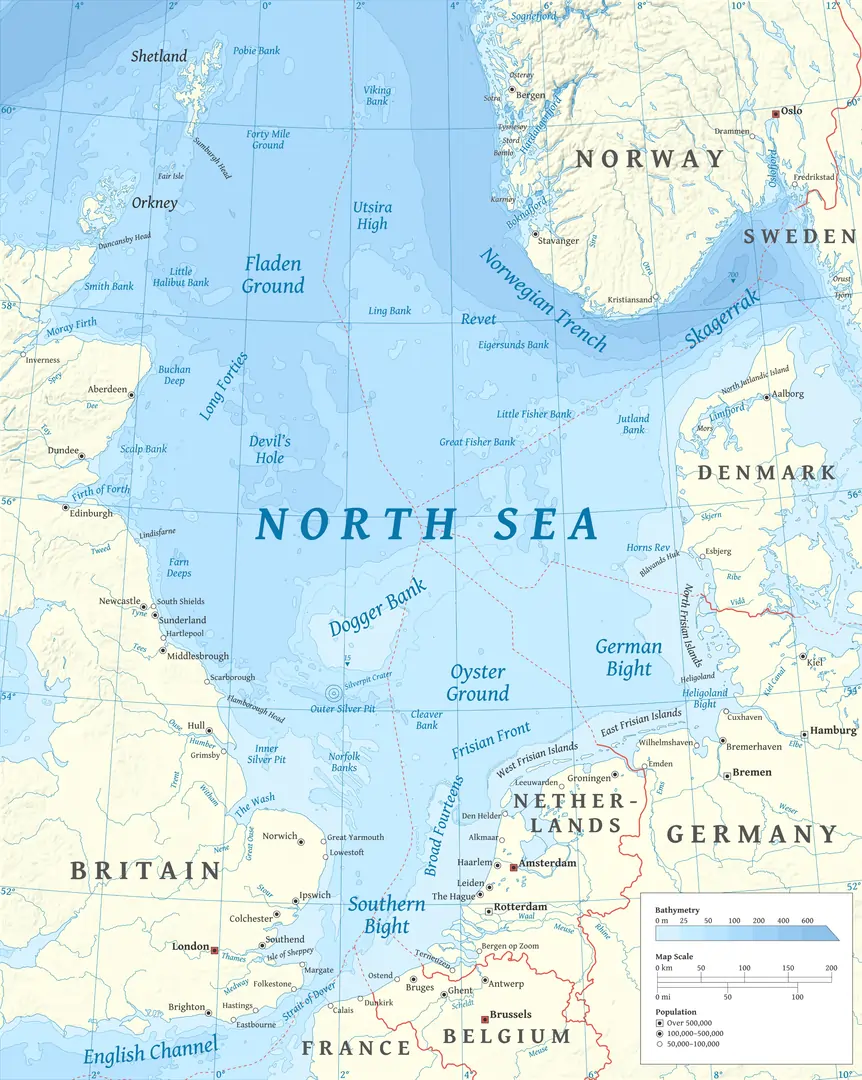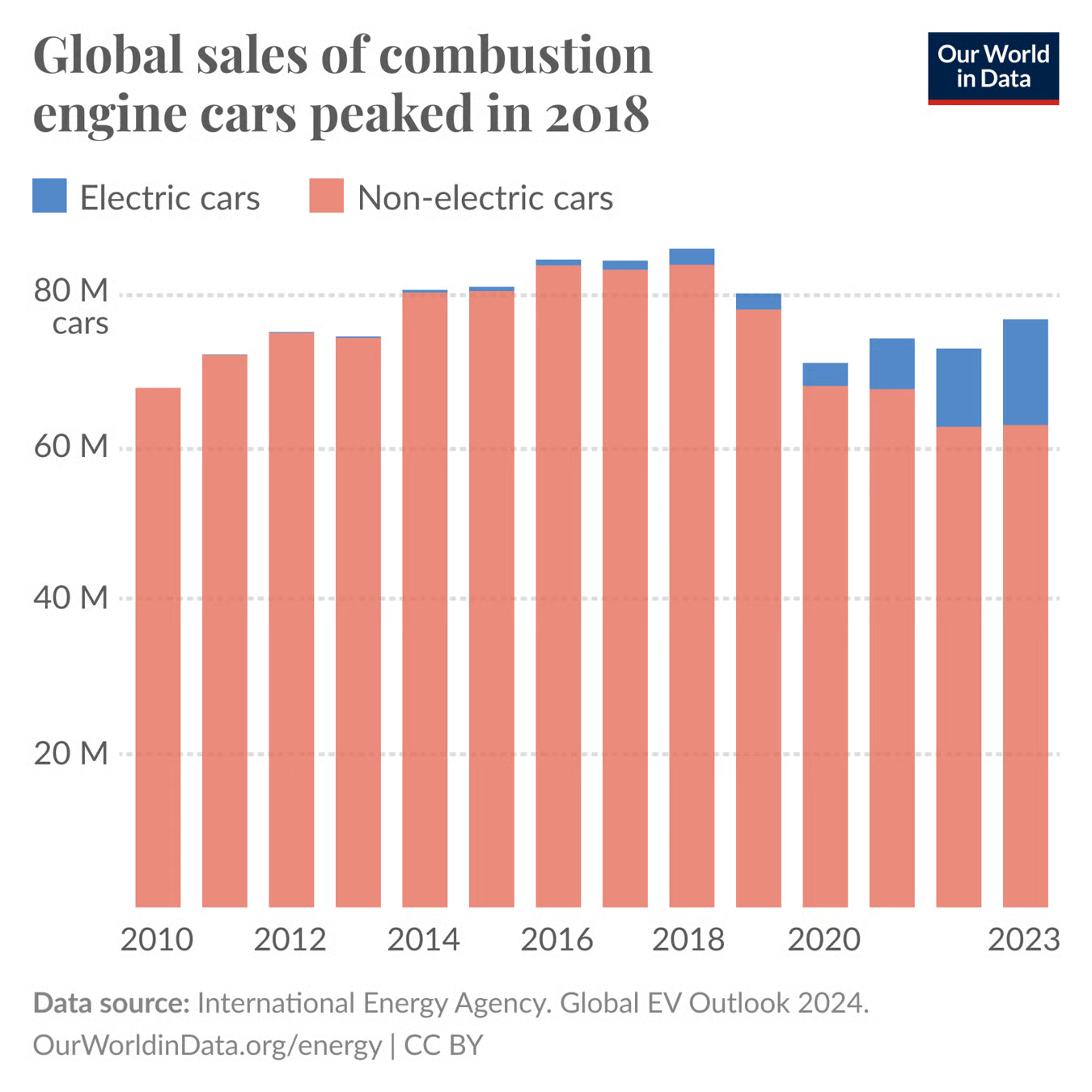Bhuvan — the age of discord: history repeats, first as tragedy, then as farce
Ever since the pandemic, the world has felt more dangerous to me than at any point in my lifetime. I don't know if I’m right or wrong, but I haven't been able to shake this feeling. Of course, it could just be a case of present bias—my perception colored by a whirlwind five years, during which a decade’s worth of world-historic shifts and conflicts seem compressed: a pandemic, regional wars, intense climatic events, and heightened political and social polarization. It might well be a historical aberration. Sure. It could also be, as historian Niall Ferguson put it, simply history happening.
That said, if you pay attention to what’s happening politically, socially, culturally, financially, and economically, it’s becoming increasingly hard to argue that this moment is just a temporary aberration. The phrase—or rather, the pithy description—I’ve had for a while now to capture this moment is “the age of discord.”
It feels like the glue and threads that held our collective sense of shared reality—however we defined it—are coming undone. The world feels like it’s coming apart at the seams. Another way of defining this moment is polycrisis, a term popularized by historian Adam Tooze:
Polycrisis (from the French polycrise), a term originally coined by French philosopher and sociologist Edgar Morin in his 1993 book Terre-Patrie, describes a complex situation where multiple, interconnected crises converge and amplify each other, resulting in a predicament that is difficult to manage or resolve. Unlike single crises, which may have clearer causes and solutions, a polycrisis involves overlapping and interdependent issues, making it a more pervasive and enduring state of instability. This concept reflects growing concerns about the sustainability and viability of contemporary socio-economic, political, and ecological systems.
This train of thought was triggered by today’s Financial Times homepage. Another thing that popped into my head was this banger of a line from Marx’s famous essay:
Hegel says somewhere that great historic facts and personages recur twice. He forgot to add: “Once as tragedy, and again as farce.”
If you’re reading this, you might be wondering: What exactly inspired this melodramatic hissy fit? Here are just a few stories from today's FT:
Emmanuel Macron apparently held a meeting of European leaders to reach a consensus on how to support Ukraine moving forward. This meeting follows another between the Russians and the Americans about ending the conflict—a meeting from which the Europeans were completely shut out. Most European countries are apparently against putting boots on the ground, while the UK seems open to the idea in principle.
Javier Milei is facing backlash after he inadvertently promoted a shitcoin that skyrocketed to the moon and then crashed back to Earth in record time. Milei claims he didn’t know it was a scam.
Then there was this headline—both funny and tragic—"Is Donald Trump serious about annexing Canada?" Here’s an equally happy-sad quote from the piece:
“When the US was founded, how many states did we have? And how many do we have now?” asked Ken Hassett, Trump’s National Economic Council director, on CNBC. “Is it outlandish to dream of a bigger United States? I don’t think so.”
Another unsettling read was from Gideon Rachman’s piece on JD Vance’s recent speech at the Munich Security Conference:
It is clear that the US can no longer be regarded as a reliable ally for the Europeans. But the Trump administration’s political ambitions for Europe mean that, for now, America is also an adversary — threatening democracy in Europe and even European territory, in the case of Greenland.
Finally, there was an editorial on Trump’s push for financial deregulation—moves that have supposedly left investors in banking stocks "licking their lips":
“The wave of deregulation is ‘a huge mistake and will be dangerous,’” said Ken Wilcox, former chief executive of SVB. “Without good banking regulators, banks will run amok,” he told the FT’s sister publication, The Banker. Trump himself will probably dodge any fallout from this regulatory free-for-all: problems deep inside the financial system often take years to develop into visible crises. But if the new administration engages in thoughtless regulatory cuts, we could all feel the effects soon enough.
And lastly—this wasn’t on the homepage, but I still had to endure it—this sordid headline: "Trump administration pressures Romania to lift restrictions on Andrew Tate."
Say what you will about Marx, but the man was right: history repeats itself—first as tragedy, then as farce. The peculiar thing about this weird moment we’re living through is that the lines between reality and satire seem to be blurring—if they haven't vanished altogether.
The only bright side to the end of the world is that it’ll be funny, at least.
Sigh.
Pranav—What in the world does Brent Crude mean?
What in the world does Brent Crude mean?
I knew that it had something to do with the price of oil. What, though? I had no idea.
After a quick look-up on Google, I learned two things.
One, there’s an actual market where people buy and sell oil extracted in the North Sea. This is called the Brent complex. The North Sea is this place, by the way:

Two, people make futures contracts for the oil that’s brought and sold here to control their prices. There are a few indices that track the prices of these futures contracts.
It’s these indices that we’re looking at when we track ‘Brent crude’ prices.
Krishna—People are not buying normal cars?
I didn’t read much today, but I came across this interesting chart. It seems like the transition towards electric vehicles is in full force.

That's it for today. If you liked this, give us a shout by tagging us on Twitter.